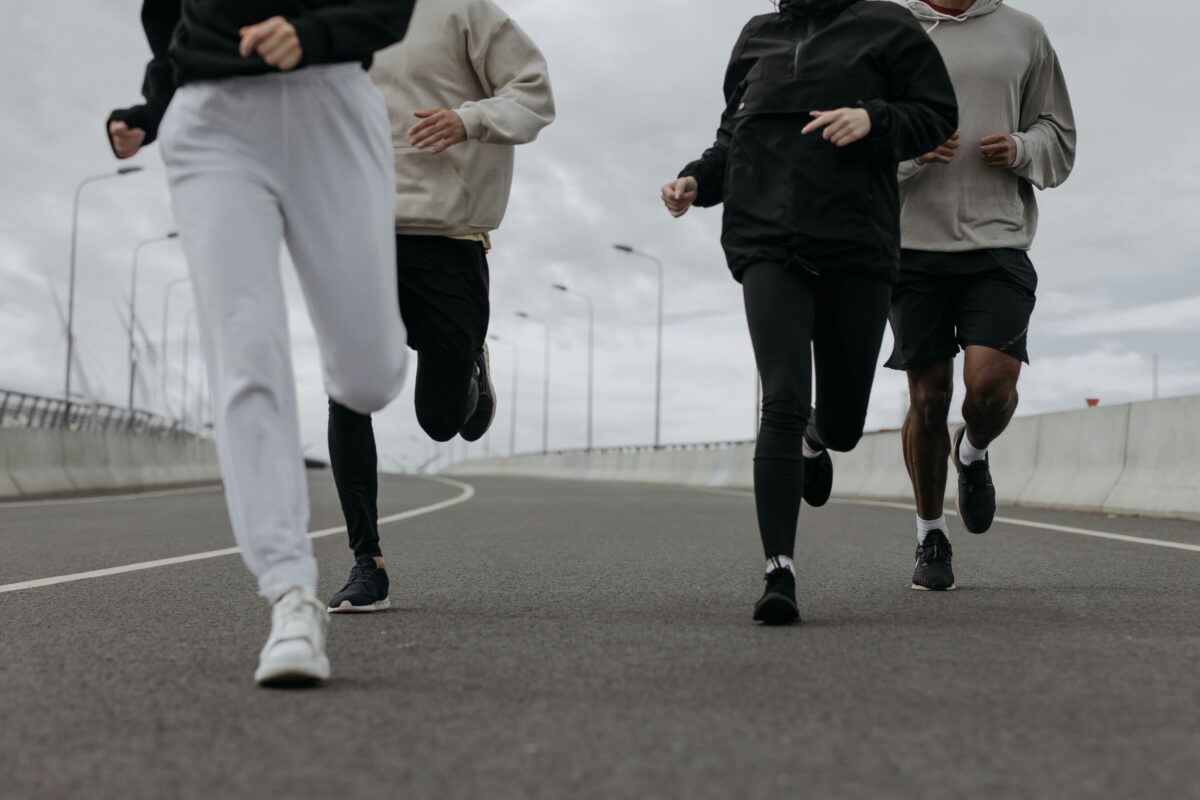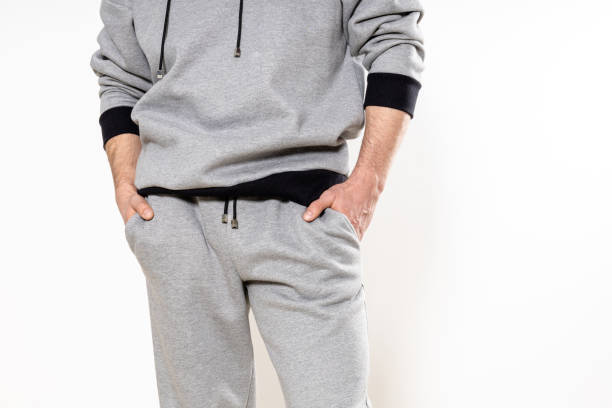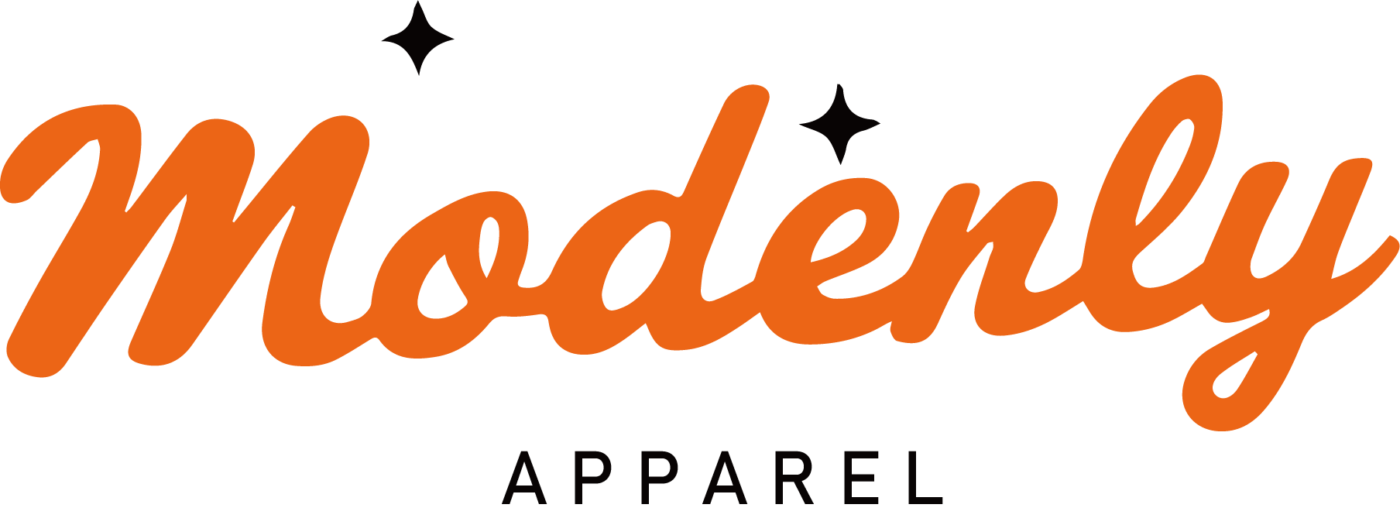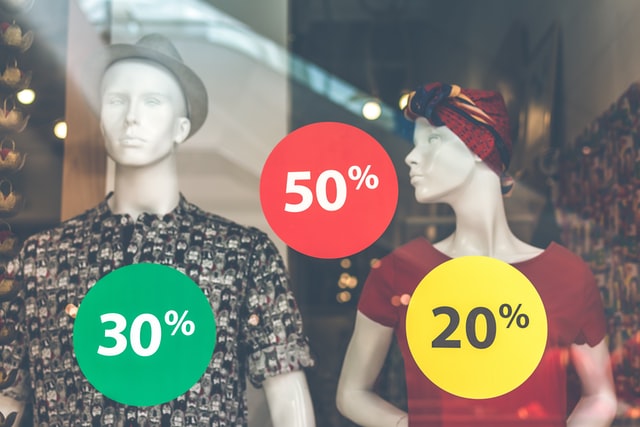In the cutthroat realm of clothing distribution and reselling, it is insufficient to rely just on generic products devoid of character. Modern businesses—from sports teams to corporate organizations—seek custom made tracksuits that capture their unique identity, reflect corporate values, and deliver real-world performance benefits. Tracksuits are a crucial addition to any B2B product line since this growing demand for customized sporting apparel offers new chances for profitability and expansion.

Why especially tracksuits? Because in our more laid-back, athleisure-oriented society these pieces effortlessly combine comfort with fashion. Custom tracksuits offer a flexible answer for anything from a corporate softball team needing cohesive attire to a company looking for promotional clothing to an influencer-driven label wanting to make a statement. For daily brand exposure, they are aesthetically versatile; they are vibrant enough for events and useful for exercises.
This essay will look at the reasons custom made tracksuits should take front stage in your B2B products. We will explore their ability to unite teams, how they could be a potent branding tool, and best practices in design and sourcing. Read on to see the strategic benefits of including bespoke tracksuits to your lineup if you are a clothing distributor or reseller trying to diversify your catalog and satisfy growing needs.
The Rise of Custom Made Tracksuits in B2B Markets
Fashion Meets Functionality
Originally designed for sports and warm-up exercises, tracksuits have developed into an all-around statement item linking streetwear and performance. Matching top- and bottom-sets that guarantees constant branding, comfortable fits, and year-round usage is appreciated by athletes, social media influencers, and business employees equally.
From a B2B perspective, offering custom made tracksuits means catering to clients who want functional apparel that promotes brand cohesion. Markets where team members or employees need a uniform that can go from informal events to on-field practice find resonance in this confluence between fashion and utility.
Driving Brand Visibility
In a world when brand impressions counts, no clothing category provides quite the same big canvas as a tracksuit. Emblazoning logos, color schemes, and unique design details, the jacket and pants can be Unlike simpler products like T-shirts or caps, when recipients don these suits at events, on trips, or in public places, they become walking billboards for the brand—a big benefit.
For business-to- business vendors, strong customizing capability is absolutely essential. Clients desire distinctive color blocks, modern cuts, embroidered patches, or reflective elements—all of which set them apart. Stocking or producing personalized tracksuits will allow you to give more value with more significant margins and client loyalty.
Rising Demand in Corporate and Sports Environments
Not only are tracksuits for professional athletes. Corporate wellness initiatives, university clubs, and community sports leagues all value consistent, comfortable clothing that promotes unity. From startups co-founders visiting clients in informal team wear to big companies awarding staff with tailored clothing, the range of possible consumers is great.
Custom made tracksuits you show to these customers assist them to portray a cohesive team identity, therefore promoting friendship and brand identification. From athletic, performance-driven designs for sports teams to more subdued, polished styles for business occasions, the diverse design potential also means you can accommodate many industries.
Benefits of Adding Custom Made Tracksuits to Your Product Line
Higher Profit Margins
Tracksuits have more apparent worth than ordinary T-shirts or hoodies. Usually paying more for the jacket-and-pants pair than for individual pieces, buyers anticipate them to be luxury items. Better profit margins for distributors and resellers follow from this readiness to make investments. As enhancements, you can place premium fabric blends (such as polyester-spandex) or sophisticated design elements (such as water-resistance or reflective detailing), therefore increasing the income sources.
Expanding Your Client Base
Offering distinctive, striking custom tracksuits will increase your attractiveness in several fields. Customers who would have missed more basic clothing lines could find the possibilities in tracksuits for team-building, brand promotion, or special initiatives. Showing design flexibility—many color choices, embroidery positions, or fabric weights—you will attract a more varied set of customers.
Custom tracksuits also bring you into touch with managers of corporate brands, sports coaches, or event planners depending on quality athletic clothing. If impressed, they could obtain other clothing products from your B2B company, creating cross-selling prospects.
Building Long-Term Relationships
Tracksuit orders usually center on seasonal needs or recurrent events like corporate promotional cycles or annual sports meetings. Once a customer feels the influence of your custom tracksuits on quality and branding, they are more likely to trust you for further reorders or expansions. This cyclical need over time helps to create regular, repeat business, therefore balancing your income projections.
Showcasing Innovation in Fabric and Design
Including contemporary materials—such as moisture-wicking, anti-odor, or environmentally friendly textiles—into your tracksuit line will accentuate the creative edge of your business. Subtle elements like improved zippers or laser-cut ventilation zones can communicate refinement. These details show clients that they are working with a forward-looking distributor or reseller who keeps ahead of fashion-tech trends, therefore displaying knowledge.
Key Elements of High-Quality Custom Made Tracksuits
Premium Fabrics for Comfort and Performance
The foundation of a great tracksuit lies in its textile selection. Popular materials include:
- Polyester-Spandex Blends: Delivers stretch, shape retention, and quick-dry functionality, ideal for athletic contexts.
- Cotton-Fleece: Ensures softness and warmth, better suited for casual or loungewear tracksuits.
- Nylon Blends: Offers durability and a sleek finish—often favored for fashion-forward designs with moderate athletic performance.
Whether your client values style, warmth, or breathability will determine the appropriate fabric mix. By guiding consumers through these decisions, you can match the finished product to their objectives—be they for casual business gatherings or rigorous sports training.
Fit and Cut
An inappropriate tracksuit might reduce brand visibility. Consequently, the cut—that of a looser, more relaxed style or a narrow, tapered leg—must suit the client’s taste. Although big fits are still somewhat common in street fashion, certain sports teams want more form-fitting designs. Clearly state usage situations:
- Athletic: Slim ankles, stretch panels, and breathable gussets in high-movement zones.
- Lifestyle: Roomier silhouettes, possibly with ribbed cuffs and adjustable waistbands for everyday comfort.
A well-fitting jacket with strong zippers and movable drawstrings guarantees that the garment not only looks beautiful but also satisfies utilitarian needs like easy mobility.
Branding and Decorative Techniques
Tracksuits give large surface areas (front, back, sleeves, pants legs), so customers can imprint them with strong images, subdued logos, or company statements. Typical personalizations consist of:
- Embroidery: Yields a premium feel, ideal for corporate or upscale sports clubs.
- Screen Printing: Cost-effective for large logos or multiple color segments, especially in moderate volumes.
- Heat Transfer or Sublimation: Provides photographic detail, though verifying durability across repeated wash cycles is crucial.
Reflective stripes or piping can also be included into modern clothing for a sleek, dynamic look—especially interesting to customers who value safety or a futuristic vibe.
Technical Enhancements
Pockets, zippers, and airy linings count. Zippered pockets let runners or sports teams safely keep keys and phones. Back portion of the jacket uses ventilation mesh to increase airflow. Elastic cuffs or toggles allow users change in fit on-demand. These add-ons greatly raise the apparent value of the tracksuit and reflect your meticulousness.

Tailoring Custom Made Tracksuits for Diverse B2B Audiences
Corporate Clients
At conferences, new product introductions, or internal team-building, companies sometimes provide team clothing. Polished, simple tracksuits with company colors and embroidered emblems highlight unity. Emphasizing subdued branding and neutral color schemes will help to fit a large staff. In this setting, stressing comfort, simple care, and a consistent corporate design helps close business.
Sports Teams and Fitness Groups
High-intensity use needs for strong durability, targeted ventilation, and moisture-wicking textiles. Performance details— reinforced knees, elastic waistbands with drawcords, and exact sizing—are valued by youth sports leagues, gyms, and professional organizations alike. Sports customers will come to trust you if you use proven athletic materials or source from performance-oriented factories.
Retailers and Boutique Brands
Streetwear enthusiasts go toward distinctive color schemes, strong patterns, or arresting designs. Younger audiences find interesting tapered legs, color-block panels, or reflective embellishments. Working with boutique fashion brands could challenge creative limits—like ombre gradient designs or embroidered monograms. Showing trend-savvy guarantees synergy for this audience focused on style.
Charities and Non-Profits
Custom tracksuits also support charitable endeavors such awareness campaigns, volunteer programs, or runs. Although budgets in this industry may be limited, well managed big orders can still be profitable. Stress affordable materials, streamlined design principles, and the possibility to enhance brand messaging—that is, mission statements or sponsor logos.
Sourcing and Production Considerations for Custom Made Tracksuits
Partnering with Reliable Manufacturers
The success of your tracksuit venture hinges on finding trustworthy suppliers. Key evaluation criteria:
- Production Capacity: Can they handle large orders without compromising quality or timelines?
- Certifications and Compliance: For socially or environmentally conscious clients, confirm relevant standards (e.g., WRAP, GOTS for organic cotton blends).
- Sampling Process: A robust sample phase ensures correct sizing, color matching, and seam strength prior to mass production.
Conduct thorough due diligence to avoid supply chain snags and ensure consistent, high-caliber output.
Minimum Order Quantities and Lead Times
Fabric choice, design intricacy, and supplier policies will all affect minimum order quantities (MOQs). Bigger orders tie down capital in inventory even when they reduce per-unit expenses. Lead times, which vary depending on delivery paths and customizing details, range from a few weeks to months and are just as important. Plan around the seasonal needs of your clientele or event calendars to keep them happy and returning.
Budgeting for Customization
Complicated designs—like multi-color printing, sophisticated stitching, or unique finishing—increase the appeal of the finished good. They raise manufacturing costs, though, as well. Provide tie-red bundles allowing customers choose between simpler single-color prints or more complex designs. Open communication about how each modification influences budget and schedule helps them to trust you.
Quality Assurance and Testing
Custom made tracksuits motivated by performance have to withstand vigorous movements and frequent washing. Check: Before deciding on delivery locations:
- Stitch Integrity: Test stress points (crotch, underarms, pockets) for tearing under moderate strain.
- Color Fastness: Evaluate if dyes bleed after a few washes or fade under sunlight.
- Size Accuracy: Ensure measurement specs match each labeled size, reducing return rates.
Well-documented QC processes elevate your brand as a dependable B2B partner.
Marketing Strategies to Promote Custom Made Tracksuits
Curating a Standout Portfolio
Visuals that capture the final result enable potential customers to see Keep a strong lookbook or digital collection with a variety of designs—athletic stripes, corporate logos, vivid street-style patterns, etc. Your website’s high-resolution photos (like Modenly.com) or sales brochures can illustrate the creativity and quality behind your offerings.
Leveraging Social Proof and Testimonials
Emphasize your success stories if you have produced great bespoke tracksuits for corporate clients or well-known teams. Positive recommendations from reputable companies can greatly increase the confidence of future purchasers. Alternatively, cite actual statistics: for example, how the brand awareness of a corporate sponsor changed following staff members donning branded tracksuits at a big event.
Trade Shows and Virtual Showcases
Think of physically showing in sporting events or apparel fairs. Allow guests to feel fabric swatches, try on sample outfits, or examine closely zipper locations. Should in-person events prove difficult, arrange virtual demonstrations—by live video or thorough product walk-throughs on your website—explaining customizing techniques. With possible B2B partners, this practical approach encourages openness and confidence.
Bundling and Cross-Selling
Distributors can develop package deals that drive more order volumes by pairing complementing items with tracksuits—like bespoke T-shirts, hoodies, or accessories. A sports team might, for instance, buy matching warm-up tees and tracksuits, therefore raising your average sale. Provide loyalty incentives or discount tiers to help to sweeten the offer and support continuous partnerships.
Conclusion
Custom made tracksuits are a profitable area that appeals to a broad audience for apparel distributors and resellers encompassing business circles, sports teams, fashion stores, and more. These clothes stand out for their strong market appeal, flexible branding, and sensible styles. Tracksuits can provide strong brand reputation, large margins, and repeat business when carefully made and deliberately promoted.
From selecting best materials to including cutting-edge performance elements, the subtleties of every custom tracksuit influence how effectively they meet consumer expectations. Working with trustworthy vendors, keeping strict quality standards, and providing dynamic design customizing can help you to constantly wow your business-to—business clients. They will then treat you with loyalty and referrals, so enabling your apparel company to flourish.
If you’re ready to develop a robust line of custom made tracksuits or enhance your existing product portfolio, Modenly.com stands as your ally. Our expertise connects apparel enterprises to high-quality manufacturing solutions for advanced, on-trend garments that outperform competition. Embrace the next evolution of brand-building apparel and stake your claim in this dynamic, ever-growing market.
FAQ
Why would a custom made tracksuit be such a successful addition to my B2B line-of business?
Tracksuits have more perceived worth than less complex objects like T-shirts. Many times seen as premium by clients, they help you to justify higher price points and increase profit margins.
For custom built tracksuits motivated by performance, what fabrics are best?
Generally speaking, polyester-spandex combinations provide stretch and moisture-wicking. While nylon-based materials give a sleek, athletic appearance, cotton-fleece suits easygoing lines. Every has special advantages.
How can I guarantee quality when I contract big tracksuit orders?
Work with respected producers that keep strong quality control procedures. Before mass manufacturing, request samples and run stress tests verifying seam durability, color fastness, and consistent sizing.
With a single tracksuit design, can I serve sports teams and business clients?
Correct. Using a flexible style, color scheme, and branding customizing will enable you to fit the base design to several consumers. Offer choices for several finishes or styles to fit every taste in the group.
With my custom created tracksuits, how can I appeal to environmentally minded consumers?
Choose sustainable packaging, minimal-waste cutting processes, and recycled or organic materials. Stress these green characteristics in your marketing, particularly given growing client value for ethical sourcing.

